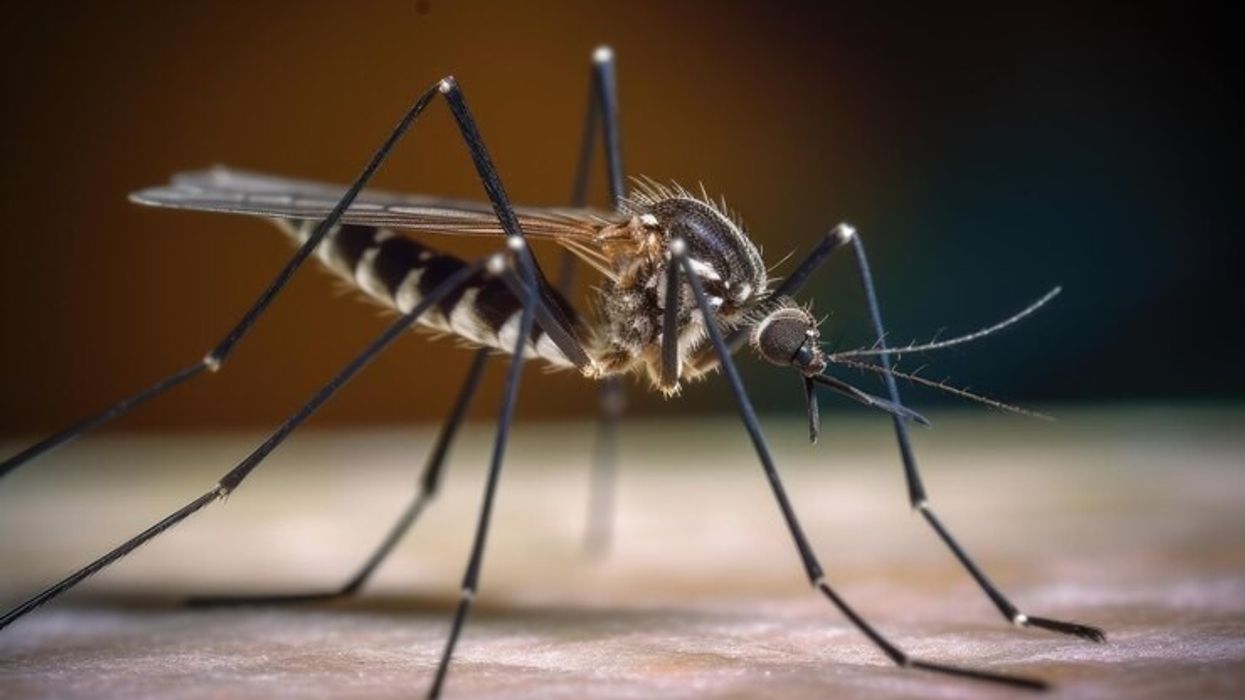People who are planning to travel abroad are advised to check the Travel Health Pro website for information on health risks in countries across the world.
The UK Health Security Agency’s (UKHSA) has advised travellers to take precautions to reduce the risk of contracting travel-associated mosquito-borne infections, such as dengue, malaria and Zika, while abroad.
Data released by the agency shows that travel-associated infections are returning to pre-pandemic levels in the UK, with many confirmed cases reported from individuals who had recently been abroad.
According to the UKHSA, 634 dengue cases were reported last year in returning travellers across England, Wales and Northern Ireland, matching closely with the figures from 2019, the pre-pandemic period, when 790 cases were reported.
The majority of reported dengue cases were acquired in Southern Asia and South-Eastern Asia, particularly India. Concerningly, there has been an increase in cases contracted in Central America and the Caribbean, resulting from recent outbreaks in these parts of the world.
A significant rise in global dengue cases was reported in 2023, with the World Health Organization (WHO) estimating over five million cases and 5000 deaths worldwide.
From January to October 2023, a total of 1,637 malaria cases were confirmed in England, similar to the 1,719 cases reported in the UK in 2019 and closely aligning with the average of 1,612 cases reported between 2010 and 2019.
As per the WHO, global malaria cases reached an estimated 249 million in 2022, surpassing pre-pandemic levels by 16 million compared to 2019.
Although Zika cases are low in the country, the health agency has cautioned that the infection can pose a particular risk to pregnant women and those trying to conceive.
In 2023, eight Zika cases were reported in England, a similar level to 2022. The highest number of cases was reported in 2016, totaling 725 cases, coinciding with the Zika outbreak in America that year.
Dr Philip Veal, consultant in public health at the UKHSA, highlighted that the surge in serious mosquito borne infections resulted from the rise in travel following the lifting of travel restrictions during the pandemic.
He suggested some simple steps that people can take to reduce the risk of these infections such as:
- Prevent mosquito bites by using insect repellent, covering exposed skin and sleeping under a treated bed net.
- Plan ahead and visit the TravelHealthPro website to look up your destination and the latest health information and advice.
“Even if you have visited or lived in a country before, you will not have the same protection against infections as local people and are still at risk,” he said.
People who are planning their trip abroad are advised to check the Travel Health Pro website, supported by the UKHSA, for information on health risks in countries across the world.
It is advisable for travellers to consult their GP, practice nurse, pharmacist, or travel clinic 4 to 6 weeks before their trip for individual advice, travel vaccines and malaria prevention tablets, if deemed necessary for their destination.
Additionally, travellers are being informed to watch out for symptoms associated with mosquito-borne infections including fever, severe headache, pain behind the eyes, in muscles, joints and abdomen, loss of appetite, nausea and vomiting.
“When you return to the UK, if you feel unwell, seek medical attention and ensure you inform your healthcare provider that you have been travelling recently,” said Dr Dipti Patel, Director of the National Travel Health Network and Centre.













